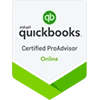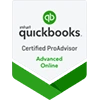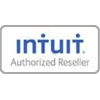
Best Real Estate Bookkeeping Services
Your trusted advisor for all your bookkeeping needs! Offering First Month
of Bookkeeping for FREE!
or Call 1800 583 0148


You Handle The Real Estate Business. We’ll Handle The Books.
- We quickly and easily help you get your books up-to-date and ready for taxes, loans, or other transactions, for a clear picture of your business’s financial situation
- Our convenient, online bookkeeping services start as low as $95 a month and are provided by Certified QuickBooks ProAdvisors and Xero-Certified Advisors
- We include accounting software and automated and secure encrypted monthly bank statement downloads
- We have your needs covered with back bookkeeping, real-time bookkeeping, payroll, and full- or part-time bookkeepers, so you can get back to doing what you do best
- We'll reconcile one month of your books for free, so you’ll see exactly how we remove your bookkeeping stress and frustration


Best Accounting and Bookkeeping Software for Real Estate Business
We support you with QuickBooks and Xero accounting and small business bookkeeping software programs
![]()
QuickBooks: Developed by Intuit, QuickBooks is tailored for small and medium-sized businesses.
![]()
Xero: As a cloud-based platform, Xero is designed to meet the accounting needs of small and medium-sized businesses.


Bookkeeping for Real Estate Agents
Real estate agents are in charge of managing all the financial aspects of a property, which includes keeping track of income and expenses. To make this job easier, they often hire a bookkeeper to help them manage their finances.
In order to be successful in this field, real estate agents need to have a strong knowledge of bookkeeping. They also need to be skilled at negotiating with clients and handling other tasks that come up during their workday.
Why Do Real Estate Business Need Bookkeeping?
Real estate businesses need bookkeeping for various critical reasons. Accurate financial records are necessary to track rental income, property expenses, and other financial transactions. Bookkeeping helps them analyze profitability, assess property performance, and make informed decisions on property investments and pricing strategies. It also aids in tax compliance, financial reporting, and budgeting. Proper bookkeeping ensures effective management of finances, transparency in financial dealings, and allows real estate businesses to maintain a strong financial foundation for long-term success.
How to do Bookkeeping for a Real Estate Business?
Start by setting up a dedicated business bank account to separate personal and business finances to perform bookkeeping for a real estate business,. Record all income from rental properties and real estate sales, as well as expenses like property maintenance, taxes, and mortgage payments. Utilize accounting software like QuickBooks or specialized real estate accounting software to manage transactions efficiently. Regularly reconcile bank statements to ensure accuracy. Keep detailed records of each property's financials separately. Generate financial reports to monitor the business's performance and make informed decisions.
When should I hire an Outsourced Bookkeeper for my Real Estate Business?
If you encounter difficulties managing the growing financial complexities or find that bookkeeping tasks consume valuable time from your core real estate activities, it's time to consider hiring an outsourced bookkeeper for your real estate business. Outsourcing bookkeeping services ensures accurate financial records, efficient management of property expenses, and compliance with tax regulations. By delegating these tasks to professionals, you can focus on property investments, tenant relationships, and strategic decisions for the success of your real estate business.
How do I scale my Real Estate Business with bookkeeping?
To scale your real estate business with bookkeeping, maintain accurate financial records to gain insights into your business's performance. Analyze income, expenses, and profitability to identify areas for improvement. Use financial reports to make informed decisions on property investments, pricing strategies, and cost management. Proper bookkeeping ensures financial transparency, streamlines operations, and allows you to focus on growth opportunities and expansion for your real estate business.
What are the Advantages of Hiring Bookkeeping Services for Real Estate Business?
Hiring bookkeeping services offers several advantages for real estate businesses. It ensures accurate recording of transactions, including property sales and commissions, enhancing financial accuracy and transparency. Bookkeepers can manage rental income, track expenses, and handle property-related financial tasks efficiently. By outsourcing bookkeeping, real estate professionals can focus on client relations, property management, and strategic growth, resulting in a more successful and profitable business.
How do I find a good real estate bookkeeping service for my business?
A bookkeeping service can help you manage your business and finances, which is why it’s important to find a good one.
To find the best service for your business, you need to consider certain criteria. These include the fee structure of the service, how easy it is to use, and how many years of experience they have in their field.
You should also look at reviews from past clients to see if they were satisfied with the services they received.
What is the difference between a real estate investor and an investor in general?
Investors can be classified as real estate investors, individual investors, institutional investors, or hedge funds.
Real estate investors are more focused on buying and selling properties. They are looking to generate income from rental properties or through the sale of their property.
Individual investors typically buy stocks, bonds, mutual funds, or exchange-traded funds (ETFs). They might also buy real estate to diversify their portfolio and generate income from rents.
Institutional investors are typically banks or other financial institutions that invest in securities to generate a profit for themselves or their clients. Hedge funds are investment firms that take on high-risk investments with high returns in hopes of making a large return on investment (ROI).
What is accounting software for real estate investors?
Accounting software for real estate investors is a type of software that helps them keep track of their financial data and make sure that they are not losing money.
This type of software is designed to help the users manage their finances, track their investments, and get the best ROI possible. It also helps them find ways to reduce taxes and optimize their income.
In order to use this type of software, you must have comprehensive knowledge about accounting principles, so you can understand how it works and what it does for you.
What are the benefits of using accounting software for real estate investors?
Real estate investors need to manage their finances and accounting software is one of the best ways to do it. They can use these tools to prepare their budgets, track expenses, and organize their income as well.
Real estate investors who use accounting software for real estate investments will have a better understanding of how much money they are making or spending. This will help them make the best financial decisions for their business.
What are the different types of accounting software for real estate investors?
Real estate investors have a lot of accounting software options to choose from. But which one is best for them?
There are three types of accounting software:
- Accounting software that is used by real estate investors on a day-to-day basis.
- Accounting software that is used as an expense report tool.
- Accounting software that is used for specific purposes, such as tax or loan calculations.
How do you buy accounting software for real estate investors?
You can buy accounting software for real estate investors from several providers. You should look for software that specializes in real estate.
You can also get it from a cloud-based platform that offers all the features you need to manage your business.
Some companies offer a free trial to test out their services before buying the software.
What is the best accounting software for real estate agents?
The best accounting software for real estate agents is one that’s easy to use and has good reporting capabilities. They need to be able to manage and track the financial side of their business, while also providing a simple user interface.
We recommend Xero as it has a wide range of features, is easy to use, and comes with good reporting capabilities.


Real Estate Accounting Services
From selling homes to investing in various types of properties, or both-you will find there are specific challenges that must be addressed when doing your bookkeeping. Two critical concepts in this industry are "leverage" and "the velocity of money." Real estate offers exceptional wealth opportunities to leverage wealth, because there is so much low-cost financing available for real estate investors. As for velocity, by applying special techniques, it's possible to keep your money constantly moving and growing through real estate investments.
The other key benefit to real estate investments is the tax benefits. To be on top of things, real estate professional are expected to keep bookkeeping at the foremost priority. You need to know precisely where you are today in order to make the right decisions, moves, or investments for tomorrow. It's essential that you regard your commission income and expenses as a serious business. This outlook will help you regard your investment activities as a true entrepreneurial enterprise.
The real story of real estate investment is one of personal wealth and your control of your financial growth. From setting up the correct type of entity, to proper bookkeeping, to maximizing your tax deductions, you must-at minimum-allocate time each week to update your financial picture.
Here are some tips from the experts on how to stay afloat:
- Keep proper corporate or business records. Hold necessary strategic meetings at least once per month with your personal advisors or team members.
- Keep bookkeeping tasks up-to-date to always know where you are today, so that you can make the right decisions at the right time.
- Review your financial picture and determine if you're meeting your goals, how far you have to go to reach those goals, and what it will take to get there.
- Maximize your tax deductions in order to keep more of the velocity of money growing.
Some of the common mistakes realtors make:
Disorganised
Lack of system or structure: No paper trail of invoices or receipts
P&L
After compiling your tax and business financials, the accountant explains the P&L and balance sheet, which is when the shock occurs. You should place the expectation on your bookkeeper to deliver this monthly - and if they can't, why?
Unrealistic timeframes
Expecting books to be completed in an unrealistic timeframe is most common. This could be because there is no understanding of what the bookkeeper does and how long it really takes, or it’s time pressure to save money. Too often the bookkeeping is only seen as a cost centre, with little value placed on what comes out.


Real Estate Bookkeeping Services
Remote Books Online.com offers you the luxury of focusing on your business while your books are looked after. Get flat, affordable monthly rates as low as $95/Month with a team of experienced Certified QuickBooks Pro Advisors to help you set your books on track.
Remote Books Online.com offers assistance with:
- Real Estate tax services - business, individual and multi-state, etc.
- Real Estate Accounting and Real Estate bookkeeping
- Real Estate business Accounting and Real Estate tax planning
- 1031 exchanges of "like-kind" investment property
- Real Estate Budgeting and cash flow projections
- Real Estate Business entity structuring
- Real Estate Tax deferral transactions
- Passive activity deductions
- Litigation support
- Real Estate Accounting software (QuickBooks for Real Estate and Xero)
- QuickBooks Online Payroll
We offer assistance in the following practice areas:
- Real estate developers, investors and operators Accounting, Bookkeeping and CPA
- Bookkeeping and Accounting Commercial real estate
- Bookkeeping and Accounting Residential real estate
- Bookkeeping Homeowner associations
- Bookkeping and Accounting for Construction and home builders
- Bookkeeping for Architects, engineering and surveying firms
- Bookkeeping for Real estate brokers and agents
- Bookkeeping Real estate lawyers
- Bookkeeping and Accounting Insurance providers for commercial and residential properties


Outsourcing Bookkeeping Services for Real Estate Business
What does it do for you?
As a business owner you are more efficient in making business decisions when you have access to your P&L and financial statements (AR’s and AP’s) in real-time. Our certified QuickBooks Pro advisors will make sure you have this information in the palm of your hand and kept up to date in Realtime.
We all know that Bookkeeping is tedious work, and as a business owner it takes you away from more important things in your business. Let our QuickBooks Pro Advisors handle your books, so you can focus on growing your business.

Get a Quote or Call 1800 583 0148


Bookkeeping Services Price List For Small Business
Select from three budget-friendly and adaptable options. We collaborate with you to tailor bookkeeping solutions to fit your unique business requirements and financial constraints. Rest assured, all our plans include a dedicated, certified bookkeeper.

Bookkeeping Services Price List for Medium to Large Businesses
Explore our tailored bookkeeping solutions designed to meet the unique needs of medium to large businesses. Our flexible pricing options ensure that you receive top-notch service from a dedicated, certified bookkeeper, customized to fit your business's scale and financial goals.
Dedicated Bookkeeper Plans
Hourly Rate: $35/hour
Commitment: 40 hours / Month
Total Monthly Cost: $1,400
Hourly Rate: $30/hour
Commitment: 80 hours / Month
Total Monthly Cost: $2,400
Hourly Rate: $25/hour
Commitment: 160 hours / Month
Total Monthly Cost: $4,000
Additional Information:
- All plans are billed monthly.
- Extra hours beyond the committed amount are billed at the same hourly rate as the selected plan.
- For adjustments to your plan or additional services, please contact us.
Our services are designed to provide comprehensive support for your business’s bookkeeping needs, ensuring accuracy and efficiency with every transaction.


Experience Seamless Bookkeeping with Remote Books Online Today
Try us out for free!
Remote Books Online handles all transactions, performs necessary journal entries, and reconciles one month of your books at no cost. We invite you to experience and assess our bookkeeping service and process firsthand, aiming to establish a long-term partnership.

Connect with an Accountant or Bookkeeper Call (800) 583-0148 to receive a quote and schedule a consultation with a Certified QuickBooks ProAdvisor for a comprehensive review of your books. Alternatively, click below to get started. We eagerly anticipate assisting you.
Check Bookkeeping off Your To-Do List
When you delegate bookkeeping tasks, you gain more time to focus on your business.
- No more late nights spent on data entry and tedious bookkeeping tasks.
- Eliminate the need for training employees in bookkeeping, saving time and resources.
- Enjoy up-to-date and accurate books at all times.
- Liberate your time to concentrate on growing your business.
{{Quote.CallbackNumberError}}


Discover What Our Clients Say About Our Online Bookkeeping Services
Empowering our clients with the financial support they need to thrive in their business is our sole focus.







